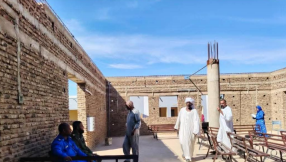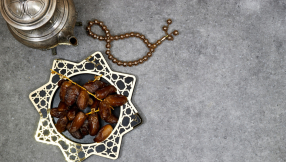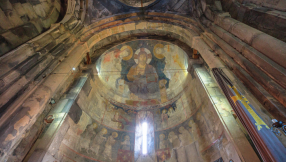"Since the day of creation, the fondest hopes of men and women have been to pass on to their children something better than they themselves enjoyed. That hope represents a spark of the Divine which is implanted in every human breast."
So said Dwight D Eisenhower, America's 34<sup>th president, and this week's subject of our series on the faith of presidents past. Having looked at JFK's Catholicism, Ronald Reagan's fight for freedom and the piety of Jimmy Carter, we now turn to Eisenhower, the Republican and army veteran who served from 1953-1961.
The peacemaker
Eisenhower was both a man of war and of faith. He was Supreme Allied Commander of the Allied Expeditionary Force that invaded France to free Europe from the Nazis. But after returning to civilian life, he said: "I am the most intensely religious man I know...nobody goes through six years of war without faith."
He would go on to face tense military conflict in his presidency, as he worked hard to heal international crises in the post-war era. Despite his impressive military credentials, Eisenhower didn't seem to relish war; rather he was well aware of its cost and barbarity, and the ultimate importance of pursuing peace.
In his in 1953 address 'The Chance for Peace', he said: "Every gun that is made, every warship launched, every rocket fired signifies, in the final sense, a theft from those who hunger and are not fed, those who are cold and are not clothed. This world in arms is not spending money alone. It is spending the sweat of its laborers, the genius of its scientists, the hopes of its children...This is not a way of life at all, in any true sense. Under the cloud of threatening war, it is humanity hanging from a cross of iron.... Is there no other way the world may live?"
The prayerful president
Eisenhower wasn't a member of any Church when he began office, but would soon join the Presbyterian Church of which his wife was a part, and became the first president to be baptised while in office. He was also the first president to write and read his own prayer at his 1953 inauguration. He said that he made this move to highlight his "deep faith in the beneficence of the Almighty" and that he "was seeking a way to point out that we were getting too secular".
He said of prayer: "Today I think that prayer is just simply a necessity, because by prayer I believe we mean an effort to get in touch with the Infinite. We know that even our prayers are imperfect. Even our supplications are imperfect. Of course they are. We are imperfect human beings. But if we can back off from those problems and make the effort, then there is something that ties us all together. We have begun in our grasp of that basis of understanding, which is that all free government is firmly founded in a deeply-felt religious faith."
One nation under God
Eisenhower's sense of faith being at the root of free government was one that he took very seriously. This didn't necessarily need to be Christianity. He famously said: "Our form of government has no sense unless it is founded in a deeply felt religious faith, and I don't care what it is."
He signed a bill to add the phrase "under God" to the Pledge of Allegiance. On the day of that bill's signing in 1954, he said: "From this day forward, the millions of our school children will daily proclaim in every city and town, every village and rural school house, the dedication of our nation and our people to the Almighty. To anyone who truly loves America, nothing could be more inspiring than to contemplate this rededication of our youth, on each school morning, to our country's true meaning...Over the globe, mankind has been cruelly torn by violence and brutality and, by the millions, deadened in mind and soul by a materialistic philosophy of life. Man everywhere is appalled by the prospect of atomic war. In this somber setting, this law and its effects today have profound meaning. In this way we are reaffirming the transcendence of religious faith in America's heritage and future; in this way we shall constantly strengthen those spiritual weapons which forever will be our country's most powerful resource, in peace or in war."
Eisenhower clearly saw faith, and the idea of God, as something indispensable, especially for America. He once said: "Faith is the mightiest force that man has at his command. It impels human beings to greatness in thought and word and deed."
But in a prescient warning, he insisted that this "faith" must not be misplaced in any one human leader. His words seem profound for today as rhetoric again divides America over who its next leader should be. He said: "Never let yourself be persuaded that any one Great Man, any one leader, is necessary to the salvation of America. When America consists of one leader and 158 million followers, it will no longer be America."
In many ways Eisenhower sounds more like a pastor than a president. He was the war hero who spoke plainly about the evils of war. He prioritised both prayer and the pursuit of peace – and he didn't separate the two.
And he seems to speak directly to our own times across the decades since his death in his poignant question: "How far have we come in man's long pilgrimage from darkness toward light? Are we nearing the light - a day of freedom and of peace for all mankind? Or are the shadows of another night closing in upon us?"













